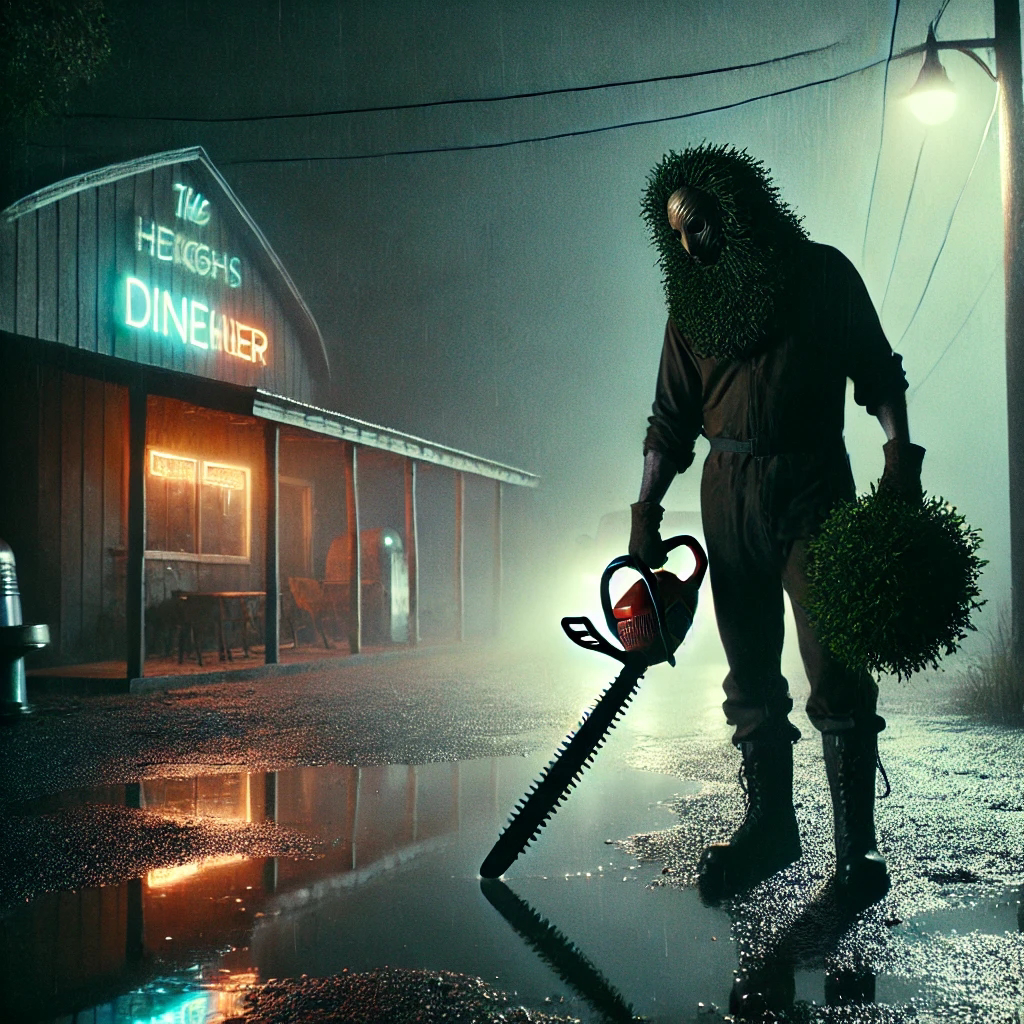There’s a certain grit to The Night Brings Charlie, a low-budget slash through the fogged-up window of late-’80s slasher cinema. You don’t watch it; you stumble into it, like a roadside dive at last call, half-expecting regret, half-hoping for salvation.
The film itself is the cinematic equivalent of a rusted blade—coarse, unapologetic, and more effective than it has any right to be. Directed by Tom Logan, this is no highbrow deconstruction of the genre, no satirical smirk. It’s a grimy piece of work, a slash-and-dash pulp novel in celluloid form, as honest in its ambition as it is shameless in its execution.
Our killer, Charlie Puckett, is an enigmatic silhouette. A landscaper turned murderer, wielding a tree-trimming mask and hedge clippers with a kind of perverse solemnity. He is less man, more myth—a shadow painted in broad strokes, purposefully vague yet somehow indelible. Like Tosches’ portrait of Dean Martin as a ghost haunting his own myth, Charlie looms larger than the story, more archetype than character.
The setting? A small-town swamp of sweat, suspicion, and blood. It reeks of the American Gothic, not the Southern belle kind but the grimy, forgotten roadside diner variety, where the coffee is burnt and the conversation darker. The locals are drawn with caricature-like strokes—ineffectual cops, doomed innocents—but within this exaggeration lies a certain truth. They are us, or what we fear to be: vulnerable, oblivious, and incapable of facing the darkness until it’s too late.
The film’s aesthetics are pure grindhouse grit. The cinematography, often criticized as amateurish, feels deliberate in its roughness, as though the film itself is peeling at the edges. The score—a cacophony of eerie synthesizers—rattles your teeth like a misfiring jukebox, an unholy hymn to unease.
Yet, there’s a strange poetry in The Night Brings Charlie. Not in the dialogue, mind you—wooden at best, laughable at worst—but in its relentless commitment to the visceral. It does not flinch, does not wink at the audience. This is horror stripped to its essence: fear of the unknown, the inevitability of death, and the unspoken truth that sometimes monsters wear human masks.
To watch The Night Brings Charlie is to sit in the dim glow of some forgotten corner of America’s collective psyche. It’s not a masterpiece, nor does it aspire to be. But like the best of Tosches’ writing, it dares to delve into the shadows, pulling out something raw, something real, something that lingers long after the credits roll.
Is it good? That’s the wrong question. The right one is: Does it haunt you? And the answer, dear reader, is yes. Charlie comes, and he lingers.

No comments:
Post a Comment